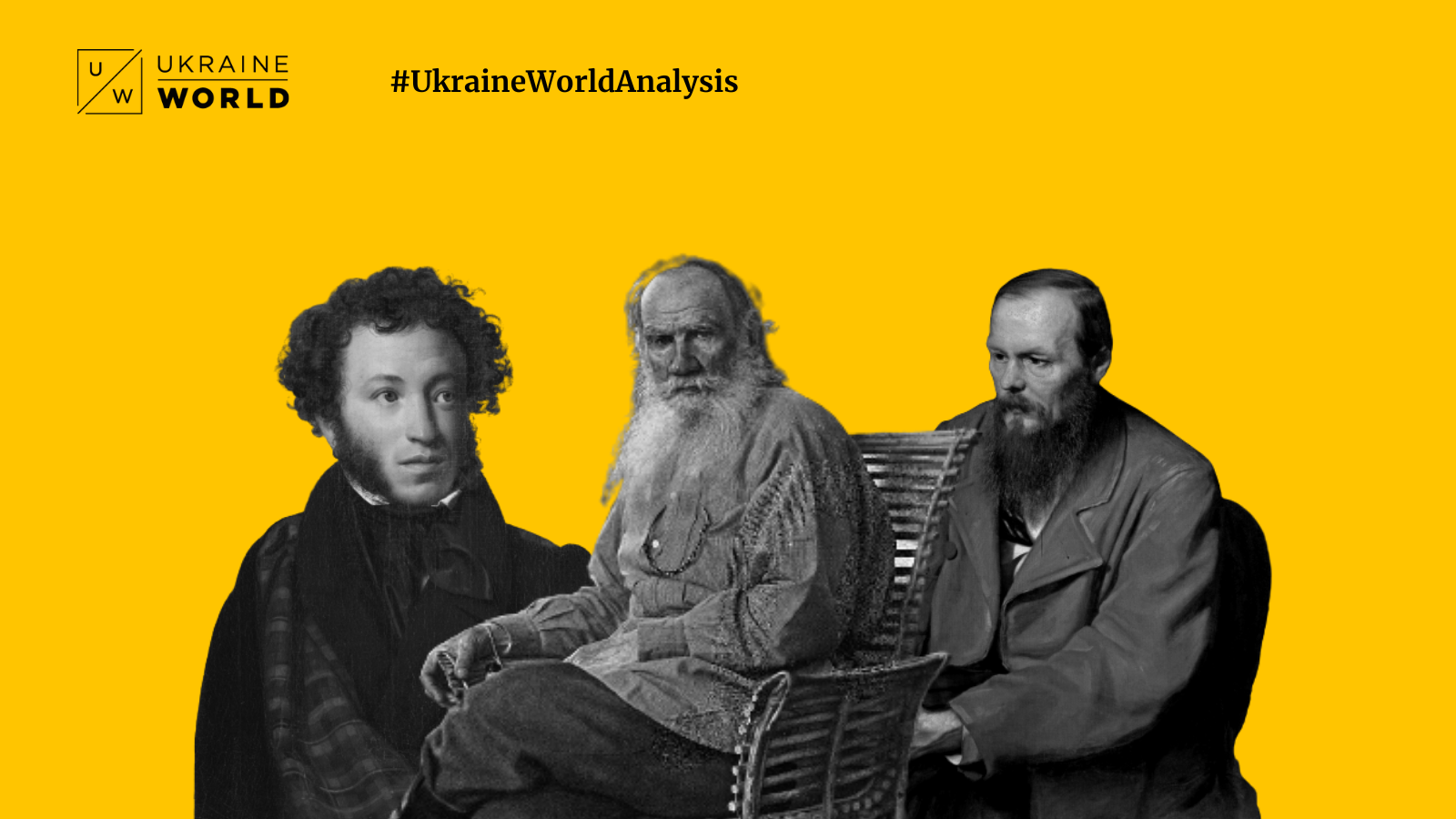How does Russian cultural imperialism manifest, and why should the world be critical of it?
UkraineWorld spoke to Volodymyr Sheiko, director general of the Ukrainian Institute, Ukraine's cultural diplomacy organization. Key points – in our brief, #UkraineWorldAnalysis:
1. On why Ukrainians are critical of Russian culture
- Ukrainians are critical not of Russian culture as such, but of how it is perceived and overrated in the world. First, we are critical of the myth of a "great Russian culture." Culture is a weapon that Russia has long used to suppress, ban, and destroy Ukrainian and other cultures. We want the world to understand this.
- But above all, we are critical of the makers of Russian culture who have proven unable to reflect on Russia's war on Ukraine, to oppose it decisively and unanimously, and to mobilise their society against the war. This is a crushing defeat of those who call themselves Russian intellectuals.
If Russian culture cannot critically look at itself in the mirror and admit its share of responsibility for what is happening in Ukraine, it should have no added value for the world.
2. On Russia's cultural offensive
- For decades, Russia has instrumentalized and misused culture to whitewash its aggressive policies, authoritarianism, war crimes, disinformation, and violations of human rights. This is an abuse of the very nature of soft power and cultural diplomacy because the primary task of these tools is to build peace, understanding, and trust, not to destroy them.
- Recently, in an interview with Novaya Gazeta, the director of the Hermitage Museum in St. Petersburg openly admitted that Russian exhibitions abroad are a "cultural offensive" and a "special operation," invoking "the Russian flag flying over Bois de Boulogne". This is the quintessence of Russian cultural policy abroad.
- This cultural offensive can be stopped if the global community suspends cultural cooperation with Russia and turns its attention to other parts of the world that are less known but no less interesting.
3. On whether it is appropriate to develop a discourse of "art for peace"
- Ukrainian culture, history, language, and identity are Russia's main targets in this war. Culture is the main obstacle to Russia's absorption and subjugation of Ukraine. This is why it is so important for us to defend it - both inside the country and internationally.
- "Art for peace" is a meaningless sentiment, because it is not clear to whom it is addressed. Peace will come when Ukraine achieves its military and diplomatic victory, whereby Russia is defeated and is held accountable for all the terrible crimes committed in Ukraine.
- Impersonal calls for peace are an infantile gesture. Instead, art can offer a critical and honest look at the true causes of this war, debunk the myth of the greatness of Russian culture, and give voice to Ukraine, which has been deprived of it for so long.
- If "peace" suggests surrender of Ukraine or cession of its sovereign territory, including Crimea, then the discourse of art for such "peace" is very dangerous and harmful. It dilutes the responsibility of Russia as the sole culprit of this war and endangers the existence of Ukraine within its internationally recognised borders.
4. On opponents of de-Russification
- For Ukraine, de-Russification is not a tool of right-wing radical nationalism. On the contrary, it is a necessary step on the way to decolonisation and liberation from the imperial and colonial past of the Russian Empire and later the Soviet Union. This is about the emancipation that any colonised community must seek to achieve.
- Opponents of de-Russification in Ukraine believe that we will lose a lot by giving up Russian culture. This is not the case. Many Ukrainians know very little about their own culture, which is in no way inferior to other cultures. It is high time we learned more about ourselves.
- Ukrainian statehood will never be complete if we don't take a critical look at our Soviet and imperial legacy and choose to cherish our own culture as well as develop cultural relations with the rest of the world.
5. On modern manifestations of cultural imperialism
- Cultural imperialism is manifested in the division of cultures into "great" and "small". Today, such a colonial and patronising view is meaningless and obsolete. Each culture has its own value - one just has to recognise it.
- It also manifests itself in arrogance and ignorance, when foreign historians, journalists, politicians or artists believe that they know Ukraine better than Ukrainians. When Ukrainian participants are not invited to events dedicated to Ukraine. When international festivals or museums don't even think of engaging with Ukrainian artists because they never cared to learn about them.
This material was prepared with financial support from the International Renaissance Foundation.
DARIA SYNHAIEVSKA, ANALYST AND JOURNALIST AT UKRAINEWORLD
Volodymyr Sheiko, director general of the Ukrainian Institute

